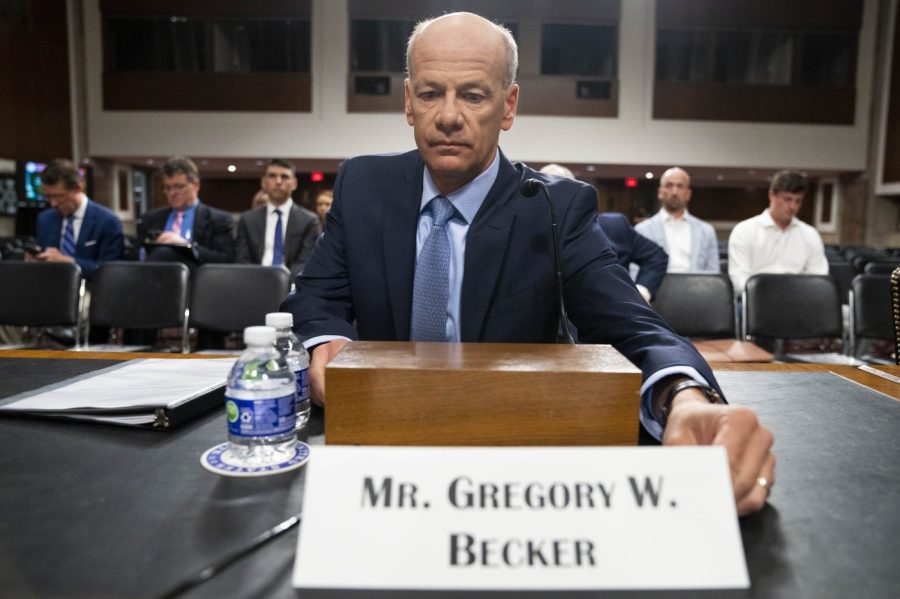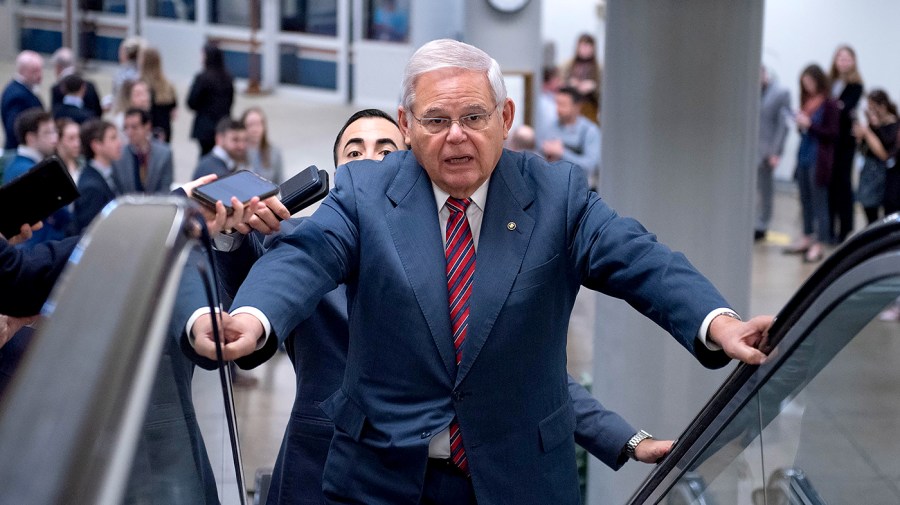Banking lobbyists, lawmakers gear up for a fight over new exec pay bill spurred by crisis
Failures in the banking sector that nearly tanked the economy earlier this year resulted in a spate of legislative proposals aimed at punishing executives and reining in the banking sector.
They range from a Sen. Bernie Sanders (I-Vt.) plan to prohibit bankers from serving on Federal Reserve boards and acting as their own regulators, to one from Sen. JD Vance (R-Ohio) and other senators diminishing failed bank executives’ enormous levels of pay.
But it is the RECOUP Act, sponsored by Senate Banking Committee chairman Sherrod Brown (D-Ohio), that was marked up in the Senate in June and could be the proposal most likely to make it into law, provided the House is interested in the bill as well.
Shorthand for the “Recovering Executive Compensation Obtained from Unaccountable Practices Act,” it would grant the Federal Deposit Insurance Corporation (FDIC) authority to take back compensation for senior executives at banks with $10 billion or more in assets in the event of a failure.
It would also increase “risk management” standards, “ensuring that management does not deviate from sound governance, internal control, or risk management; and ensuring appropriate long-term risk management tailored to long-term economic conditions,” according to the bill.
According to the Federal Reserve, 132 large commercial banks had assets over the $10 billion threshold as of June 30.
Of those, Bank of America, Citigroup, Morgan Stanley, Discover, TD Bank, Santander and Deutsche Bank — or firms lobbying on their behalf — disclosed work on the RECOUP Act during the second quarter, an analysis of federal lobbying disclosures by The Hill found.
A source within Deutsche Bank was unfamiliar with work on the legislation, and Tiber Creek Group, the lobbying firm that disclosed monitoring the bill on the bank’s behalf, did not return a request for comment from The Hill.

Banking industry stays tight-lipped about what it wants
But most banks, accounting firms and industry groups that disclosed lobbying on the bill have not publicly stated their stance on the legislation, due in part to vagueness in the text about what the updated “risk management” and prudential standards actually mean.
These provisions “could include directing senior officers to implement and oversee reporting and information systems,” attorneys with Mayer Brown wrote in an analysis of the legislation.
The Independent Community Bankers Association (ICBA) spent more than $2.3 million last quarter on federal lobbying efforts that include carving out exemptions for smaller banks in the RECOUP Act.
“ICBA has worked with the congressional offices to include in the bill an exemption for community banks under $10 billion in assets,” the group wrote ahead of the Senate Banking Committee vote.
“ICBA continues working to increase the exemption threshold because, arguing the bill should address large banks with outlier business models, such as the failed Silicon Valley Bank and Signature Bank of New York.”
The ICBA declined to comment to The Hill further for this story. Morgan Stanley also declined to comment, and Bank of America, Citigroup, Discover and TD Bank did not return The Hill’s request for comment.
Tiber Creek Group disclosed monitoring the RECOUP Act on behalf of the U.S. Chamber of Commerce, the influential pro-business organization that spent $16.9 million on federal lobbying during the second quarter.
A Chamber spokesperson pointed The Hill to testimony from Tom Quaadman, executive vice president of the Chamber’s Center for Capital Markets Competitiveness, during a Senate Banking Committee hearing in May.
Quaadman told the committee that “clawbacks can be a tool to help disincentivize unsavory corporate behavior” and agreed “financial institutions should avoid excessive risk.”
But he warned that cracking down on incentive-based compensation might discourage talented individuals from working in finance at the chief executive and senior executive level.
“It might also chill the kind of healthy risk-taking — lending, financing and investing — that spurs economic growth and job creation in our capitalist system, resulting in corporate stagnation,” Quaadman added.
Other financial industry players told The Hill they are just keeping an eye on the legislation.
Getting tough on bankers ahead of an election
The opportunity to look tough on banks has obvious appeal for lawmakers ahead of the 2024 election, as public opinion rages against bank bailouts and public rescues of private lending institutions.
“[Eighty four] percent of Americans agree – 56 percent agree strongly – that taxpayers should not have to foot the bill for irresponsible bank management, including 85 percent of Democrats and 86 percent of Republicans,” a Reuters Ipsos poll found in March.
Bob Menendez (D-N.J.), along with fellow Sens. Jon Tester (D-Mont.), Chuck Grassley (R-Iowa) and others, have their own piece of executive clawback legislation for failed bank executives.
“Clearly, we need to ensure that poor managers can’t profit when their banks go under,” Menendez told The Hill in a statement.
“The RECOUP Act updates our laws on executive accountability to ensure that regulators can remove or prohibit senior executives who failed to oversee and manage risks in their banks and claw back their compensation,” he said.
A spokesperson for Tester told The Hill that “bank executives cashing out on their own failures flies in the face of Montana common sense.”
“The Senator’s bipartisan legislation gives federal regulators the tools they need to claw back failed bank executives’ compensation and ban these bad actors from immediately re-entering the financial industry,” the spokesperson said.

Whether representatives in the House will be interested to take up any of the proposals cooking in the Senate remains to be seen.
The House Financial Services Committee declined to give an update on the status of banking legislation.
The specter of the SVB collapse and the global financial crisis
Actions by executives involved in the banking crisis sparked concerns among the public and legislators that more regulation might be needed.
Those include moves by Greg Becker, the CEO of Silicon Valley Bank, whose bank went under and almost pulled down the entire interconnected banking business, and who sold millions of dollars worth of his own stock in the lead up to his bank’s collapse.
Becker, who was permitted to sit on the board of the San Francisco Federal Reserve as his own ostensible regulator, dumped more than $3 million in stock Feb. 27 amid regulatory warnings.
“You were paying out bonuses until literally hours before regulators seized your assets,” Brown told Becker in a hearing dedicated to his bank’s failure.
Becker and his fellow executives were blamed repeatedly for mismanaging their bank, investing in long-term securities whose exchange value was dropping just as the Fed was raising interest rates in response to inflation.
Fed regulators also admitted to a “shift in culture” that changed their supervision work, accepting part of the blame for a situation that raised the ghost of the 2008 financial crisis.
“The underlying issue the House Financial Services Committee has been focused on addressing is the lack of transparency and accountability surrounding bank regulators’ decision-making in crisis situations. The Increasing Financial Regulatory Accountability and Transparency Act, offered by Subcommittee Chairman Andy Barr, would do just that,” Laura Peavey, communications chief for the House Financial Services Committee, told The Hill.
Copyright 2024 Nexstar Media Inc. All rights reserved. This material may not be published, broadcast, rewritten, or redistributed..















